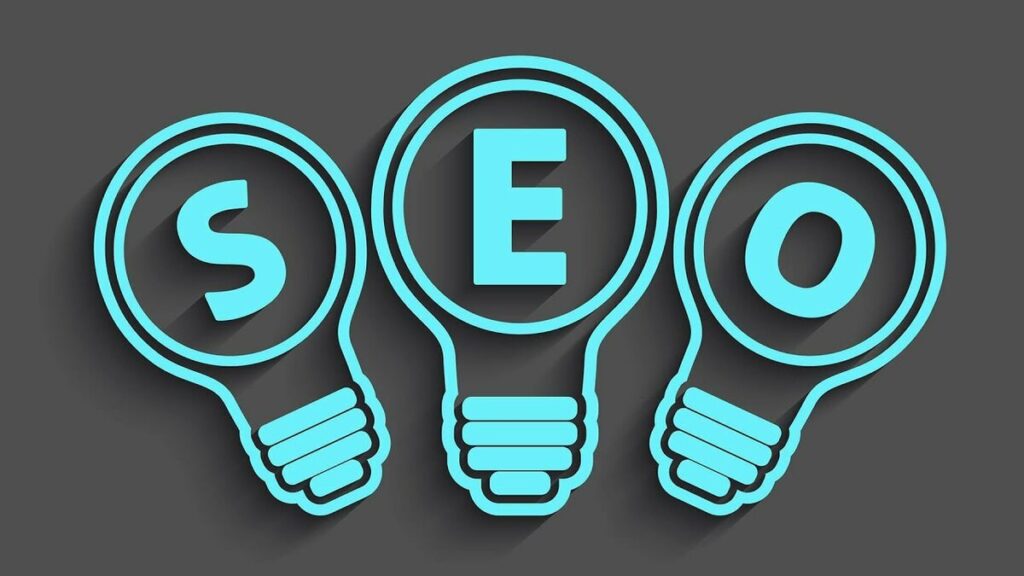Where to start learning SEO: how to learn and become a SEO expert from scratch
Where to start learning SEO: how to learn and become a SEO expert from scratch

Hey, folks.
This post is not about how or where to start promoting your site yourself. It’s about how to learn seo, where to start studying this field and become a seo-specialist. Of course, this manual can be useful for those who want to promote their own site, but I do not think it is an appropriate investment of time, because if you follow the instructions in good faith and read all the information, it can take many months, or even a year! Personally, I think that the business owner should be engaged in business and strategic planning, not trying to do everything on their own. However, if you are a businessman and yet decided to immerse yourself in the subject area (in order to competently control the performer, rather than doing everything by yourself), I recommend to study the block “Theoretical Framework” and stop there.
Further I will state the information for the future planters, that is those who want to learn and become a good specialist and work in this industry.
What made me write this post and for whom is it intended in the first place?
Being the founder and head of Alaich & Co, I have been able to successfully delegate almost everything from the moment of its foundation until today, but I consciously leave two things behind: processing incoming applications and finding employees. The second is a very complicated process, which has to be optimized from year to year, and sometimes I have to change the approach completely.
We have learned how to successfully and efficiently screen out candidates at the start so that we don’t have to communicate with those who only think, not really want to learn and become a good seo-specialist. Spending time on such people is not just pathetic, but inexcusable and unprofitable for business. Therefore, at the end of last year I came up with a non-standard test task for all those who want to get on training to us in the company.
But regardless of whether a person plans to get to work in a company, or maybe already got there, or even wants to learn SEO, to quietly live in a village on the coast, to lead several clients on the freelance and enjoy life, you need instructions, a certain plan of training and further development of the specialist.
I started by wanting to explain who I wrote this post for. First of all, for all our trainees who come to work in the company. Now we are just developing and standardizing an internal instruction for training newcomers, and I want to supplement it with this post (or post to supplement the instruction?). Secondly, I will discount this post to all the candidates who responded to us, completed the test, but I haven’t become an intern yet, and in order not to lose time, I hope these guys will do self-study (if they really want to become specialists and work with us). Thirdly, of course, this post is for you, dear readers, and in general for everyone who will find my instruction, and I will be glad if someone will teach my trainees and beginners.
Finally, you and I have decided for what and for whom this manual, so it is time to get to the point and start explaining what the requirements are, and where to begin your journey into the world of SEO.
Are you sure I want to be a SEO? Is the SEO field suitable for me?
According to observations of my colleagues, beginners and trainees, I can say that the best way to cope with the duties are people of the technical warehouse of mind. Ideal are physicists and mathematicians (I myself am a physicist). But if you are a humanitarian, this is not a sentence. As Thomas Edison said: “Genius is one percent inspiration and ninety-nine percent perspiration” – in other words, 99 percent success in any business depends on the diligence and hard work you put into the business you do. Therefore, 1 percent in favor of a technical mindset, and 99 percent in favor of perseverance.

Interest and desire – if these two things were not, a person would not have moved at all (not taking into account the need and physical needs), so it is very important, but even more important to maintain interest for a long time and feed it with new achievements in a career or work with personal projects.
There is a lot of information ahead of you. Even too much information. I see a clear relationship in the development and success of those guys who, in addition to working in the office engaged in self-study evenings, nights and weekends. I do not call for such a murderous work schedule, I do not recommend depriving myself of rest, worldly concerns and joys. But I hint at the fact that at the start, not dedicating all your time to training, you will not succeed (although it all depends on your personal ambitions. After all, for someone to find just any job and get any salary – already a success).
And you know where to start? Strange as it may seem, you should first learn to use search engines and find what you are looking for. Believe me, the query “how to use the yandex” does not sound stupid at all. So you can find a very useful help about search results. And how you can learn how to optimize sites for people and search algorithms, if you have no idea what the search engine shows, from what and on what principles is formed search output.
After 5 years in Physics, I learned little about physics, but made enough life lessons. And one of them is the following: a stupid person is not the one who asks if he does not understand, but the one who does not ask questions when he does not understand. At university I was stupid – I didn’t ask because I was ashamed to ask some nonsense, afraid to seem stupid if my question would be too primitive, if I asked what everyone knows … Only years later I realized how weak this position was. Always ask if you have a question and have the opportunity to ask! (Again, statistics: trainees who ask questions are much quicker to learn and much quicker to get things done).
In addition, seo is a dynamic field and something is constantly changing. You have to maintain and update your knowledge, but I’m already getting ahead of myself, because in order to update something, you have to know “something” first. So, here are four things that each SEO specialist must do:
to get an overview of CSS and HTML;
to figure out how search engine algorithms work;
learn the basics of website optimization and promotion;
get to know the tools of analytics.
And the last thing I want to say at the beginning. I have already written that I am personally looking for specialists and trainees for us in the company, and among the candidates I have heard more than once something in the spirit of, say, it/marketing/seo – this is a very promising industry, for its future, a lot of money and all that. I am not against the desire to earn a lot, on the contrary, I support such aspirations, but it should not be a goal, but a motivation on the way to achieve a certain goal. And if it’s only a question of money, it’s better to look at the specialties of plumber or welder, I’m not kidding, there are more salaries there than couriers. It is just my personal wish that you consciously go into this field of activity not only for money, but for other values and bring some values with you.
Okay, I will no longer pour water, there will only be specific recommendations and advice. Okay, here we go.
What a SEO should know about
The basics and basic terms that the coulter should know:

HTML and CSS (js – not necessarily):
Basic tags: , , , , <style>, <body>.<br /> Titles: <h1>, <h2>, <h3>, <h4>, <h5>, <h6>.<br /> Tables: <table>, <tr>, <td>, <th><br /> Content: <p>, <div>, <span>, <img>, <br>, <a href=””>, <strong>, <em>, <noindex>.<br /> Lists: <ul>, <ol>, <li><br /> I will not list the CSS properties, there are many of them and they are all needed. If you have a specific task, use the recipes. Help links:</p> <p>HTML Reference Guide<br /> CSS Handbook<br /> CSS recipes (in examples)<br /> Search engine basics (indexing, indexing, ranking factors, geodependency, regionality, personalization, relevance, search engine output, TOP, snippet, site mirror, CTR, update, contextual advertising, assessor, bot);<br /> Hosting and CMS (admin, URL, CNC, FTP, hosting, backup, server, CMS, engine, management system, database, domain, IP, server response code, 404 error, 301-redirect, htaccess, header, footer, sidbar);<br /> Keywords (search queries, semantics, semantic kernel, NF, HF, LF, clustering, commercial / information / navigation / transaction query);<br /> Internal optimization (robots.txt, site map, sitemap.xml, meta tags, title, description, h1, relink, content, copyright, rerite, copapast, occurrence, word form, listing, pagination, micro markup, nesting level, bit link);<br /> External optimization (reference mass, incoming link, external link, donor, acceptor, anchor, link exchange, rental links, eternal links, link purchase);<br /> User factors (behavioral factors, PF, commercial factors, usability, competitor analysis, aggregator, branding);<br /> Sanctions and Algorithms (Filter, Ban, Plato Schukin, Affiliate, Spam, Minusinsk, Baden-Baden, Penguin, Panda, Spectrum, Matrixnet);<br /> Analytics (Metrics, Webmaster, Search Console, Analytics, traffic, visit, session, conversion, goals);<br /> Work with Excel, Google Sheets.<br /> For each of these items you will find information in the materials below. In brackets, I have indicated the basic terms that you should understand when you mention them.</p> <p>What is the responsibility of a SEO<br /> You should know what the future holds for you. Here’s a list of responsibilities in our company:</p> <p>Conducting technical audits,<br /> Correction of technical errors that are not related to software work,<br /> Optimization of meta tags, headlines,<br /> Collecting a semantic core,<br /> Clustering the semantic core,<br /> Designing the project structure,<br /> Preparing spreadsheets,<br /> Creation of new landing pages,<br /> Detailed competitor analysis to optimize landing pages,<br /> Optimization of target pages based on competitor analysis,<br /> Preparation of technical tasks for content,<br /> Optimization of content written by copywriters,<br /> Conducting a commercial factor audit,<br /> Audit of reference mass,<br /> Preparation of anchor lists for purchase of references,<br /> Selection of donors and purchase of reference masses,<br /> Snippet analysis and improvement,<br /> Traffic analysis,<br /> Behavioral factor analysis.<br /> I am sure that it is not possible to learn for myself everything that is the responsibility of a seo-specialist. Without practice and an experienced mentor, you will never be able to understand how to do something right (in this case, “right” is not how it is written somewhere, but in a way that gives the desired result).</p> <p>So this is a list of what you will be able to do after several years of training and practice. Once again I emphasize that you will not be able to learn quickly, it is physically impossible (as well as giving birth in 3 months if you work 3 times harder).
SEO training plan
I said at the beginning that I was ready to share our training plan for young professionals and trainees. I don’t know what you’re going to do with it, but I think it’s just a more structured version of the paragraph about what the coulter should understand. Let’s call it a knowledge sheet!
Open up a hell of a porter.
I think I’ve already frightened you enough with terms, huge lists, burdened you with responsibilities and, in addition, said that it would take you several years to start understanding all this. But it just so happens.
I have been doing SEO myself for 15 years now! To think that’s half my life…
When I started studying SEO, there were no blogs and books (the first book about optimization and website promotion appeared in 2007, it was the Ashmanov’s book), everything had to be studied and understood by the very method of trial and error, experiments and failures. Now, on the contrary, there is an overabundance of information, so in some sense the task has both simplified and complicated at the same time. Now we have to not just look for information but learn to understand where it is correct and where it is misleading.
Theoretical basis. What should a SEO-specialist study?
The first thing to learn – we are not going to deceive search engines and their algorithms. We’re going to learn how to play by the rules. Over time, there are fewer ways to cheat (manipulate), and most importantly, they make less and less sense.
The second thing is that we will not harm our competitors, but will make our site better.
The basis of your training is understanding how search works, how search robots behave, how indexing, the process of ranking and what personalization is.
Read: How are the services of Yandex.
This is where you learn what it is: Internet indexing, Preparing a search engine for answers, Architecture of answering a question, Search hints, Processing a query, Defining the language, Morphology, Expanding a query, Selecting objects, Correction of errors, Spectrum of answers, Ranking and machine learning, Assessors, Retraining, Geo- and geo-referenced queries, As defined by user region, Regional search results, Personal search, Personal reply, Search results, Snippet formation, Snippet design, Additional information in snippet, Witch doctors, Object response, Semantic markup.
This fundamental knowledge will give you much more information about advancement than you think, even though there is not a single word about advancement.
I suggest you start by studying the stages of development and changing the algorithms of search engines. This will allow you to understand where the search is going in order to know what to pay attention to now and in the future.
At the dawn of search engines it was enough to add keywords to meta keywords to make the page appear in search results by these words, even if the content of the page did not match these keywords. And today the keywords meta tag is not taken into account by search engines at all, and over the past 10 years, a lot has changed completely, some algorithms have become tipping points, formed the basis and became the foundation of the algorithms that operate today. Below I will list these key events.